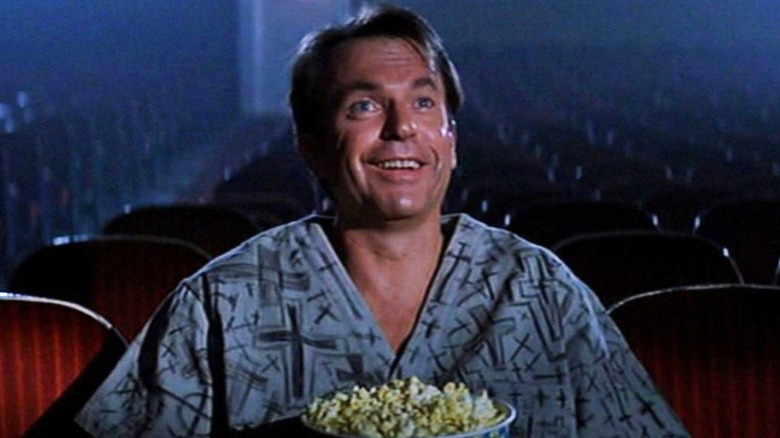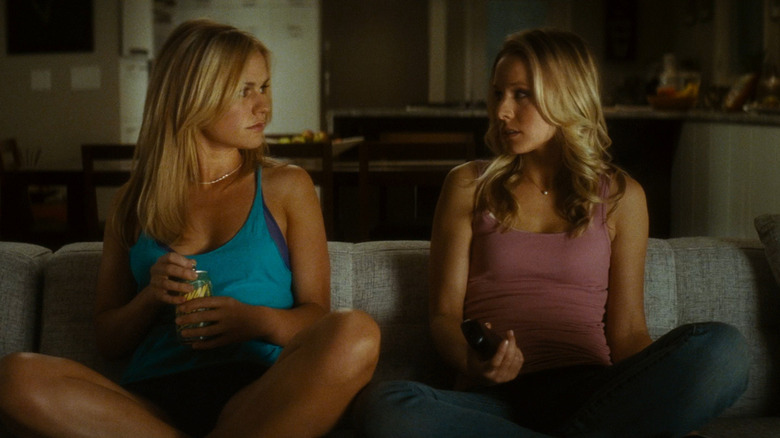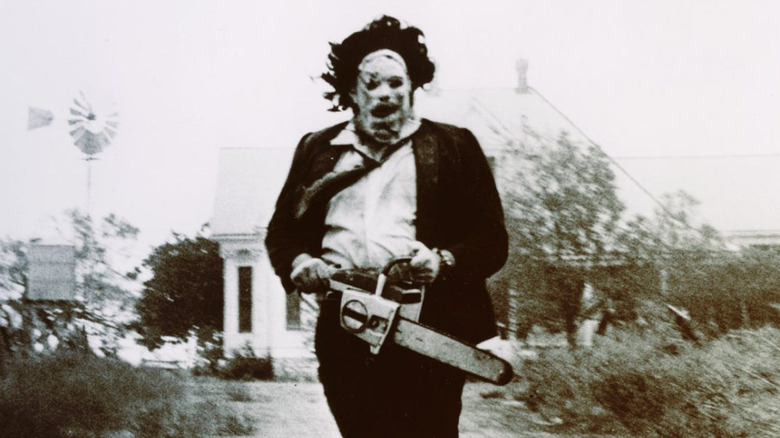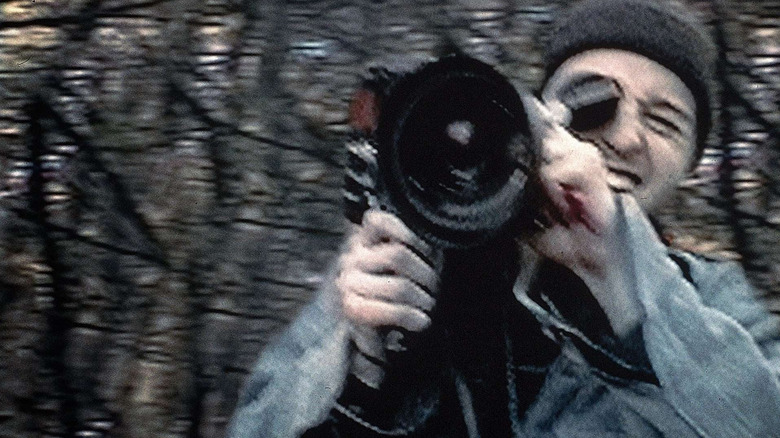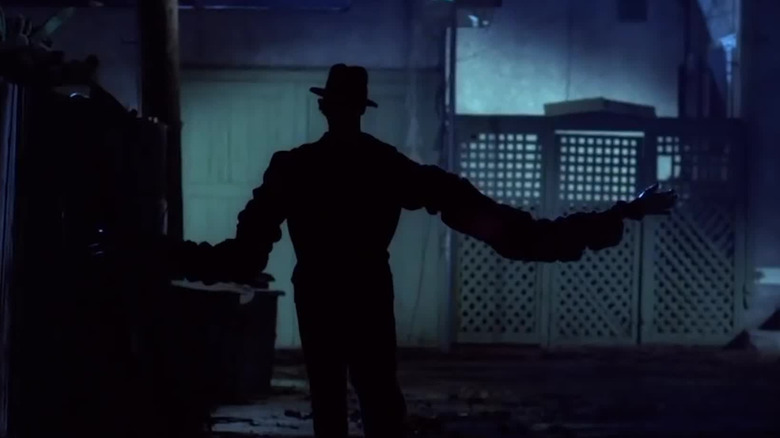Horror Movies Can Affect Your Health More Than You Think
Horror movies – they'll rot your brain, or turn you into a violent maniac! At least, that's what we used to be told about them. We should all know by now that horror movies, and horror entertainment in general, do not cause violent behavior. The genre shouldn't be blamed for the horrors of reality — after all, it's just a movie.
That isn't to say, though, that horror can't impact your real life to some degree. In fact, watching horror movies has shown to have some palpable effects on both your mental and physical health. You won't be cursed or anything like that after you watch a horror movie. But you may experience some noticeable changes to your body or psyche if you consume a regular diet of horror. Believe it or not, the majority of those effects have been found to be positive.
Don't believe us? There is actually a niche field of medical experts who have studied the effects of horror media on health. Here's what they have to say.
Horror and mental health
While the gory and gruesome scenes in your average horror movie often seem distressing, they actually hold the potential to provide comfort. This is especially true for people with clinical anxiety. In a 2020 study published in NeuroImage, a group of Finnish scientists found that people with anxiety disorders can find horror movies relaxing due to "the anticipation of threat from environmental cues, and the reaction to threat onset." In layman's terms, knowing that distress is coming through a jump-scare or slasher kill is more relieving than experiencing a distressing event without warning.
Viewers can also find comfort in horror movies by experiencing terrifying events vicariously through the characters. In an article published by CNET, the director of the Center for Cultural Studies and Analysis, Margaret J. King, explained that viewers may react positively to watching someone go through something unavoidably terrible, while they themselves have full control of their surroundings.
"Horror movies have a long history of providing a kind of reassurance," she explained. "Viewers can immerse themselves in a harrowing narrative yet at the same time be perfectly safe, able to control the stimulus by turning it off or shifting attention to the surrounding space."
Horror and physical health
Horror is one of the few movie genres that can elicit a visceral reaction from the viewer. The tell-tale signs are all there, including a slight increase in heart rate and blood pumping through the muscles. According to the Mayo Clinic, these feelings are extremely similar to those you feel while you exercise. While you shouldn't replace your workout routine with a horror marathon, it is still healthy to experience those jolts of adrenaline every once in a while.
It isn't just healthy levels of adrenaline that can flow through your body while watching horror movies. A 2009 study published in the academic journal Stress suggested that more white blood cells could be circulated around a person's body if they watch a stress-inducing but still fictional horror movie. In case you were wondering, yes, the control variable in this study was "The Texas Chain Saw Massacre," so the researchers conducting this important experiment had taste!
The unsavory effects of horror
While it is important to acknowledge that horror movies aren't the dangerous boogeyman that many pearl-clutchers accuse them of being, that doesn't mean they still can't produce some negative side effects. It's important to note that horror movies simply aren't for everyone. Even though some people find comfort and fun in the genre, others find it genuinely upsetting, despite knowing that what they're watching is fictional. The body does not always register what is real vs. what is fake, so even if you know that Freddy Krueger can't actually kill you in your sleep, your body could react like he might.
Another strange side effect of horror is affiliated with a particular subgenre, and it might be one that even the most hardcore of horror fans are susceptible to. Found footage movies such as "Cloverfield" and "The Blair Witch Project" have gotten complaints over their usage of shaky camera movements, resulting in viewers getting motion sickness. According to a Toronto Star conversation with University of Toronto professor Bob Cheung, this is because the film's perspective is directly at odds with the senses that govern orientation. You can read more about this phenomenon in our write-up on "Cloverfield."
So, what's your favorite scary movie?
Ultimately, the effects experienced after watching horror movies are individual. While one person might be scared to turn one on, another might turn to horror to settle down. It boils down to someone's psychology and physiology, and personal tolerance can certainly change over time. Many horror fans start out being scared of the genre before growing to love and find relaxation or excitement in it.
It's fascinating that a single genre can elicit reactions this strong, whether mental or physical. This gets at the true importance of horror: throughout all its various subgenres and movements, it always holds the potential to subject a viewer to sensations they hadn't felt before. Whether it be through chainsaw-wielding maniacs, creepy supernatural children, or anything in between, horror can affect the way that you experience the world around you. What other type of movie can say that?
